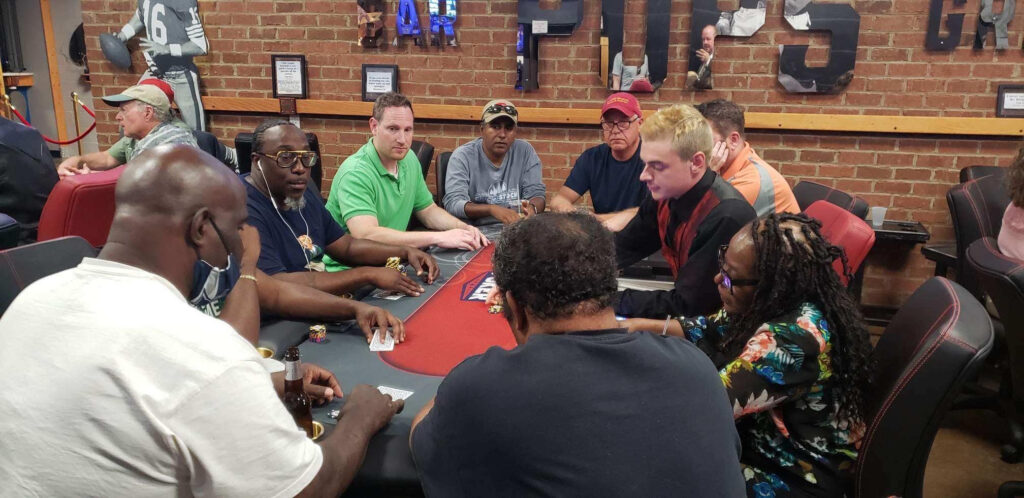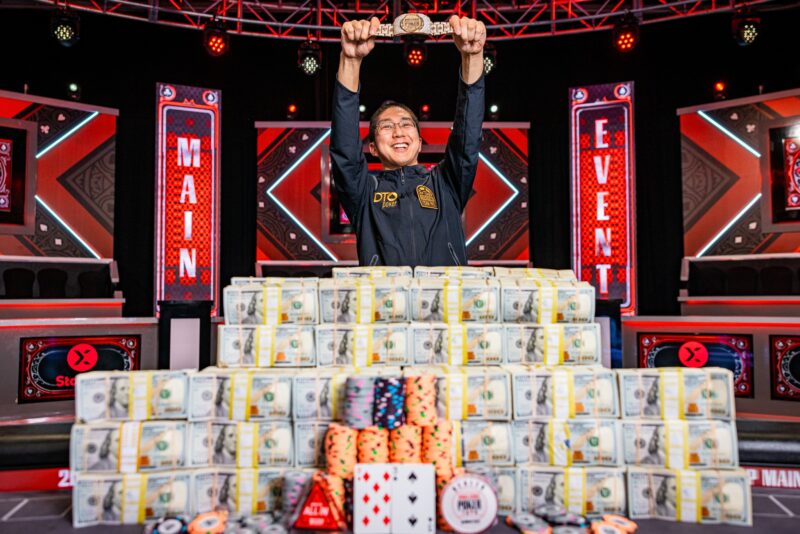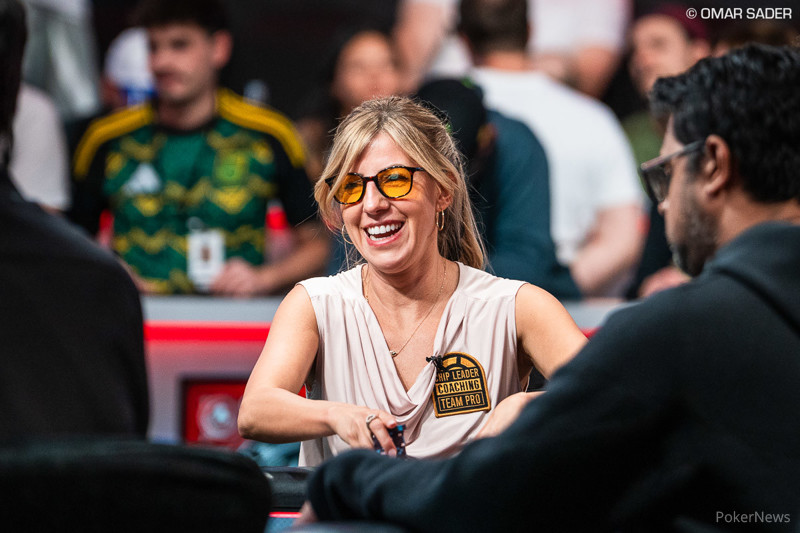Virginia’s Office of the State Inspector General (OSIG) released a report panning the approved rules and regulations for Texas Hold’em tournaments run for charity.

The report that hit the Governor’s desk on Thursday warned that the Charitable Gaming Board essentially paved the way to “allowing the creation of poker halls in Virginia where a poker tournament only needs a charitable organization as a sponsor of the tournament.”
The report also indirectly called out a board member who helped write the new rules for opening a poker room in his bar and bingo hall. The chairman of the Charitable Gaming Board, Chuck Lessin, opened Pop’s Poker in August even though Virginia hasn’t yet solidified the laws to regulate charitable poker tournaments and hasn’t issued any operator permits.
A longtime bingo hall operator with his own charity organizations, Lessin helped write the rules that would apply to him and his son’s charity poker tournament company. He didn’t recuse himself from voting on the rules, which is also problematic, according to the OSIG.
While Lessin defended his actions, telling CardsChat he was transparent to the board with his intentions, the report recommended updating the board’s code to prevent what it calls a conflict of interest from happening again. By law, the board must include one member who is a charitable gaming supplier and one member who is an owner, lessor, or lessee of premises where charitable gaming is conducted.
Firewalls and bingo games
Every vote concerning Hold’em implementation by the board still would have passed, even if Lessin had recused himself. “I followed the law and I followed the instruction of the Attorney General,” Lessin said. “So I did exactly what I was supposed to do and now, afterwards, they’re saying I should have recused myself.”
The General Assembly approved charity poker with SB936 in 2020 and put the onus on the Charity Gaming Board to write the regulations. After 13 public meetings, these rules were finalized and unanimously passed by the board last year. “The agency decided that they were very, very opposed to much of what we put in the regulations,” Lessin, who is a home builder, said.
That agency is the Virginia Department of Agriculture and Consumer Services (VDACS), which oversees all charitable gambling in the state. It’s the Charitable Gaming Board that writes the policy, as per the Code of Virginia. When the General Assembly passed SB936, it required the Charitable Gaming Board to write the rules and regulations. The board has 11 members, six of them appointed by the Governor, three of them appointed by the Speaker of the House of Delegates, and two of them appointed by the Senate Rules Committee.
The biggest problem its regulators had with the new rules is that they allow poker tournament rooms, operators, landlords, and suppliers of equipment to be the same people.
The rules surrounding charity bingo require “firewalls” between suppliers, operators, and landlords, and also require bingo operators to be volunteers. That won’t work with poker, Lessin said. He also said that those firewalls are often breached, and VDACS does not have the will or the manpower to enforce violations.
“A lot of people have gotten around those firewalls. People were finding all kinds of loopholes, they’d get their cousin’s brother’s sister to own the company,” Lessin said. He said the board chose to change these rules to stop this from happening and to provide better transparency while also ensuring the poker games are run smoothly.
Lessin said the Charitable Gaming Board doesn’t want those same firewalls to exist in poker, and doesn’t care if the same person owns the building, is the president of the charity, and owns the Texas Hold’em poker operations company. “There will be very strict disclosures if that exists,” he added. “If you fail to disclose you have any overlapping interests, you lose the license to do that activity forever.”
The board-approved regulations allowed for the operators to take 50% of net proceeds, the money left after all the prizes were won. It requires a minimum of 2.5% to be used by the charitable organization.
A charitable mess
According to the OSIG’s report, the hold’em “regulations create conflicts and consistency issues that damage the integrity of the charitable gaming program.”
OSIG outlined three main issues: Allowing third parties to run the tourneys, allowing conflicts of interest, and fears that the expansion will create an enormous burden too large for the VDACS to handle. The OSIG told the Governor that VDACS doesn’t have “oversight and enforcement authority of over 70% of charitable gaming gross receipts in the Commonwealth.”
It further warned that the VDACS won’t be able to meet the regulatory demands that the implementation of Texas Hold’em tournaments would require, and it would need to add more employees. Right now, the agency is short-staffed, down at least two inspectors and two auditors, which makes it unable to meet its current workload.
The OSIG suggested moving operations and enforcement over to the Lottery Board, and making the Charitable Gaming Board an advisor without power to make regulations.
Virginia allowed bingo halls to begin operating in the state in 1995, so long as at least 5% of the revenue went to charity. In 2013, the state expanded gambling by allowing electronic slots, which the state considers electronic pull-tabs. The rules clearly define who gets to profit from these machines, and who doesn’t.
In 2019, electronic pull-tab machines in more than 300 locations throughout the state brought $964 million, which generated a gross of $251 million, with $26.2 of that going to charity.
Competing with the casinos
Fully legal poker and casino gambling is coming to Virginia, maybe as early as December of next year. Voters in five cities have approved casinos, and poker will be included in at least Caesar’s plans for its Danville property. Lessin said the only way for charity poker to work after the casinos open is to give the charity poker operators the same rules when it comes to who can run the games.
“Be hard on the charities and make sure they’re doing everything the right way. But don’t say they can’t operate like the competition is operating. We’re crippled before we even start, and that makes no sense,” he said.
Although unlicensed, poker — including tournaments — has been running for the entire month of September at Pop’s Place. Pictures on its website show dealers dressed professionally, a cage with a computer system, and players sitting elbow to elbow at tables branded with “Pop’s Poker.”
VDACS successfully froze processing and accepting charity poker tournament permit applications through a budget line edit. But, even without a permit, Lessin believes his room is operating within the scope of the law. “I believe that the way the bill is written, it does not require that the regs be in effect before you can play,” he said. “And that may be a matter for the judge to decide and we’ll find out.”
As it stands now, the rules remain in place and can be found on the VDACS website, but no permits have been issued. Lessin is suing VDACS to get his application approved. It’s now up to the General Assembly to allow the rules to stand and order VDACS to process applications or send the Charity Gambling Board back to the drawing board with new instructions.


